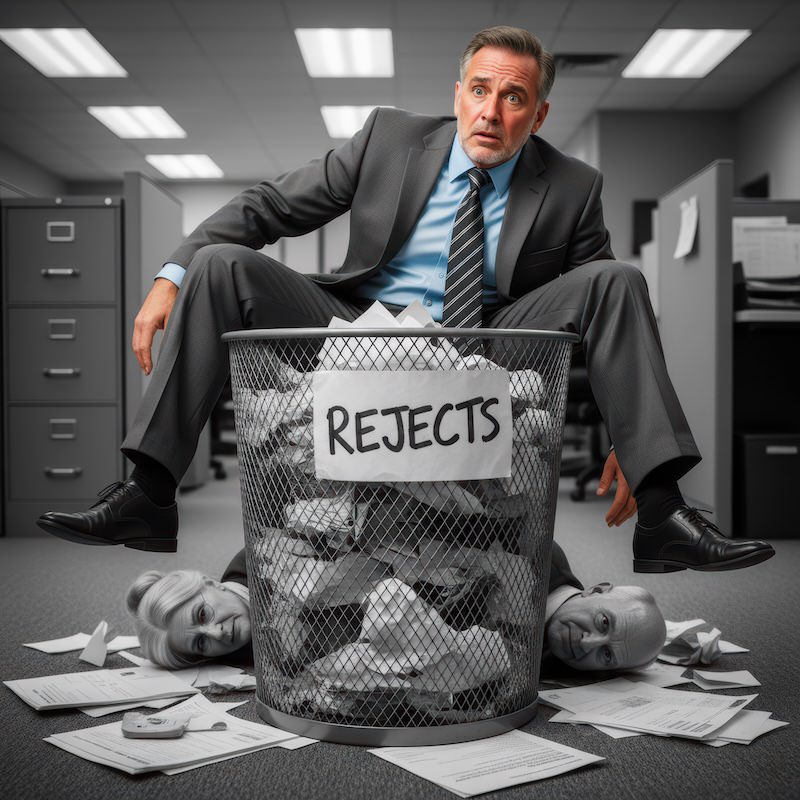A recent Guardian report revealed that nearly 1 in 4 Australian employers consider 50 “old.” This would be hilarious if it weren’t tragic. Especially since today’s 70-year-olds have the same cognitive sharpness as 53-year-olds from two decades ago. So why are companies so quick to swipe left on maturity? Do we really think experience has a shelf life? Spoiler: it doesn’t.
The hidden cost of hiring only “digital natives”
In Australia, only 56% of businesses are willing to hire people aged 50–64. And just 17% are open to hiring anyone 65+. That means a lot of talented, loyal, stress-hardened professionals are being passed over—while hiring managers pray their 25-year-old “growth hacker” shows up before 11am.
Singapore tells a similar tale. There, even young people report age bias, suggesting ageism may be less about wrinkles and more about rigid mindsets. As one HR lead diplomatically put it: “We value fresh ideas.” Translation: “We think everyone over 45 needs help opening a PDF.”
Meanwhile, older workers quietly disappear. No cake, no farewell speech, just a “We’re going in a different direction” email and a deactivated ID card.
Business suffers too
Ageism costs companies dearly. It kills mentorship, weakens culture, and amputates a chunk of wisdom from decision-making. Innovation thrives in cognitively diverse teams. And no, older workers aren’t allergic to tech. They just remember when apps weren’t subscription services and “clouds” didn’t need passwords.
Studies show that multi-generational teams perform better: blending youthful speed with seasoned judgment, ambition with stability, and hype with a healthy dose of “Let’s not crash the server again.”
Practical advice for employers
- Scrub your job ads of ageist nonsense: If your listing includes “recent graduate” or “high-energy digital wizard,” you might as well write “no boomers, thanks.” Hire forcapability, not candles on a birthday cake.
- Make age part of your DEI plan: Diversity isn’t just about gender and ethnicity, it’s also about age.
- Mix it up: Reverse mentoring: Pair the young guns with the grey matter. The 28-year-old can teach Reels, the 58-year-old can teach how not to send a client 12 emojis by accident.
- Offer flexible exits, not cliff edges: Let seniors scale back with dignity. Job-sharing, phased retirement, part-time wisdom dispensing, whatever works.
- Measure who’s climbing and who’s stuck: Audit your promotion and training data by age. If everyone moving up was born after 1995, it’s not a coincidence, it’s a culture problem.
And for employees
- Keep learning, even if it’s from YouTube: You don’t need to know how to code in Python, but being able to use Slack without breaking it helps.
- Tell your story differently: “30 years of experience” sounds like a museum exhibit. Try: “I’ve scaled teams, survived four CEOs, and can write a crisis comms plan before my second coffee.”
- Join reverse mentoring programs: Teach the Gen Z crowd what a landline was. Learn how to use Threads without triggering an existential crisis.
- Challenge the voices in your head: Especially the one whispering,“I’m too old for this.” You’re not. You just need better lighting and a decent LinkedIn photo.
- Speak up about bias: Age discrimination is illegal in many countries. Call it out.
Cognitive diversity isn’t just a buzz phrase
Cognitive diversity is the holy grail of modern teamwork. When you blend youthful optimism with seasoned pragmatism, magic happens. Imagine a team where one person dreams big, and the other says, “Cool idea. Let’s not get sued.”
Innovation, resilience, and better decisions come when teams think differently—together. So before you toss out the 57-year-old applicant who’s “been out of the game,” remember: they built the game.
The final word
Ageism is lazy thinking. It’s time to replace “culture fit” with “culture add,” and stop confusing being older with being obsolete.
Older workers don’t want a gold watch. They want meaningful work, fair chances, and a bit less jargon in your Slack messages. And they bring something no AI can replicate: wisdom, lived experience and a sense of humour. So let’s build workplaces that respect every stage of life.
